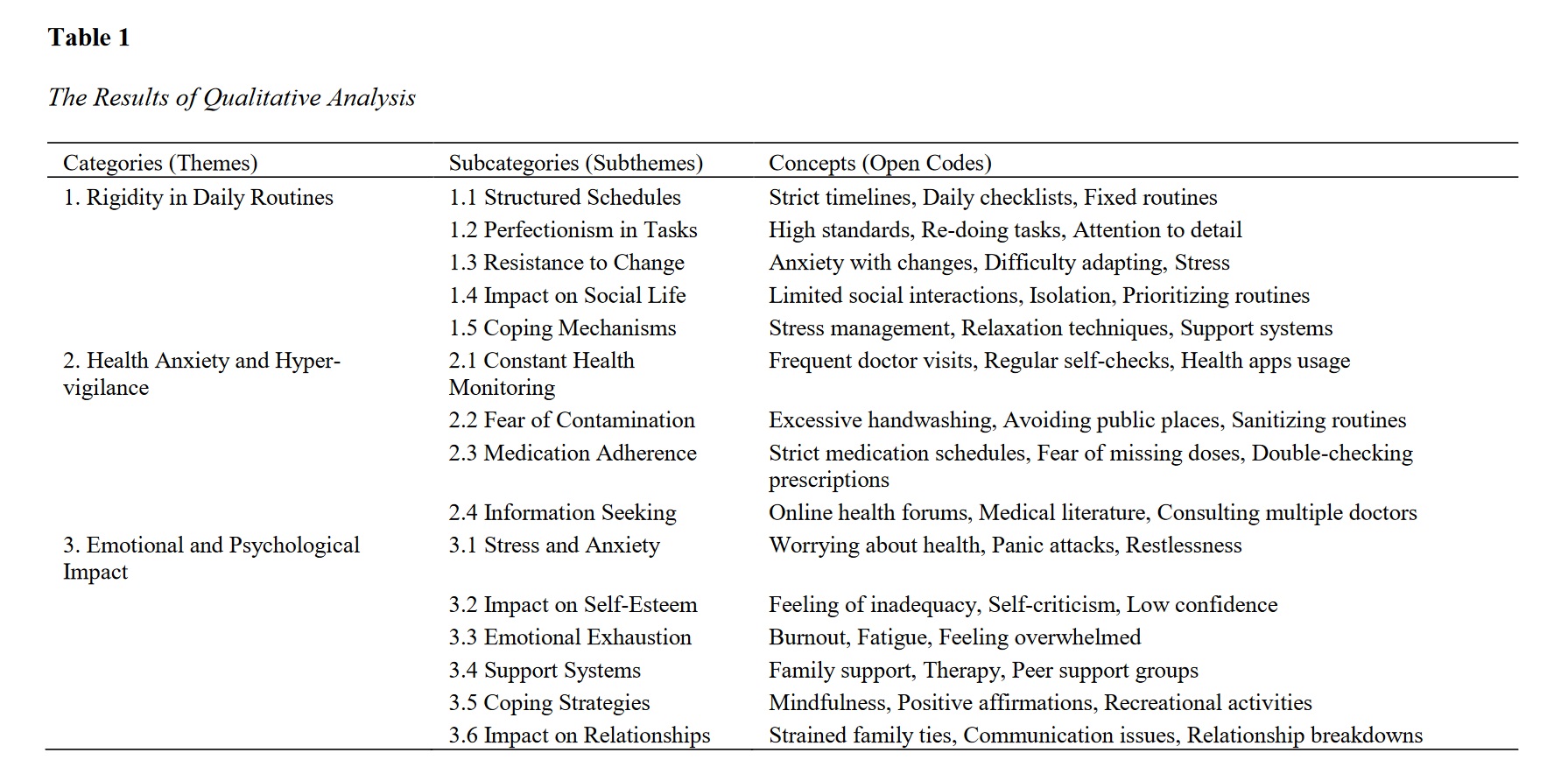Understanding the Impact of Obsessive-Compulsive Personality Traits on the Management of Chronic Illness: A Phenomenological Study
Keywords:
Obsessive-compulsive personality traits, chronic illness management, qualitative research, health anxiety, emotional impact, phenomenological studyAbstract
This study aims to explore the impact of obsessive-compulsive personality traits on the management of chronic illness. A qualitative research design was used, focusing on semi-structured interviews with 20 participants who exhibited obsessive-compulsive personality traits and were managing chronic illnesses. Participants were recruited from outpatient clinics, support groups, and online forums. Data collection continued until theoretical saturation was achieved. The interviews were transcribed verbatim and analyzed using NVivo software. The analysis involved coding and identifying themes and subthemes to capture the essence of participants' experiences. The analysis revealed three primary themes: rigidity in daily routines, health anxiety and hyper-vigilance, and emotional and psychological impact. Participants described a reliance on structured schedules and routines, which, while helpful in managing their illness, often led to significant stress when disrupted. Health anxiety manifested as constant monitoring and fear of contamination, contributing to heightened stress and anxiety. The emotional toll included feelings of inadequacy, self-criticism, and emotional exhaustion. These findings align with previous research on the pervasive effects of obsessive-compulsive traits on mental health and daily functioning, emphasizing the dual role of these traits in facilitating and complicating chronic illness management. Obsessive-compulsive personality traits significantly impact the management of chronic illnesses, influencing behaviors and emotional well-being. The study highlights the need for tailored interventions that address both the psychological and practical aspects of illness management. Future research should include larger and more diverse samples and explore the effectiveness of various interventions. Healthcare providers should develop individualized care plans to support patients with these traits, enhancing their quality of life and illness outcomes.
Downloads

Downloads
Additional Files
Published
Issue
Section
License
Copyright (c) 2024 Wioleta Karna (Corresponding Author); Ireneusz Stefaniuk, Nadereh Saadati (Author)

This work is licensed under a Creative Commons Attribution-NonCommercial 4.0 International License.






